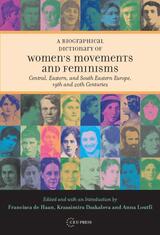5 start with B start with B

From Berlin to the Bering Strait, the business of banking has sprung to life. This analysis considers the impact of banking reform on macroeconomic stabilization and the suitability of universal banks, the role of banking regulation and the advantages of 'narrow banks' during transition, the cleaning up of bad debts, and the reform of the payments system.
The book assesses the lessons which can be drawn from reforms in Central Europe for the later reformers in the former Soviet Union and the Balkans. It considers the impact of banking reform on macroeconomic stabilization and the suitability of German-type universal banks; the role of banking regulation and the advantages of 'narrow banks' during transition; the cleaning-up of bad debts; bank privatization and reform of the payments system. Five chapters follow which review the experience of some of the 'second-wave' countries: Estonia, Georgia, Romania, Russia and Ukraine.




Stanislaw Baranczak, a Polish writer in exile, turns to his colleagues and their plights, in Poland, Czechoslovakia, Hungary, and the Soviet Union, to explain why oppressive regimes could not succeed in their attempts to transform the Eastern European into Homo sovieticus.
These superb essays focus on the role that culture, and particularly literature, has played in keeping the spirit of intellectual independence alive in Eastern and Central Europe. Exploring a variety of issues from censorship to underground poetry, Baranczak shows why, in societies where people struggle to survive under totalitarian rule, art is believed to have the power to make things happen.
He brings into sharp relief the works and personalities of many legendary figures of recent Eastern European political and cultural history from Lech Walesa and Pope John Paul II to Václav Havel and Adam Michnik to Czeslaw Milosz, Witold Gombrowicz, Bruno Schulz, and Joseph Brodsky--and makes vivid the context from which they spring. Some of the essays probe the sense of inarticulateness experienced by writers in exile; many represent the literary essay at its best; all reveal that Baranczak is a sophisticated, often savagely funny writer on whom nothing is lost.
This refreshing and provocative book guides us toward a clearer understanding of what has led to the present moment, in which the nations of Eastern and Central Europe, tired of striving to "breathe under water," are finally "coming up for air." It is rewarding reading for anyone interested in art's confrontation with an intractable political reality--wherever it occurs in the world.
READERS
Browse our collection.
PUBLISHERS
See BiblioVault's publisher services.
STUDENT SERVICES
Files for college accessibility offices.
UChicago Accessibility Resources
home | accessibility | search | about | contact us
BiblioVault ® 2001 - 2025
The University of Chicago Press









